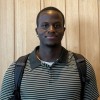Financial Literacy: A Key to Building Generational Wealth
Last year, I had the incredible opportunity to attend Yale’s Black Solidarity Conference, which focused on the theme “Transforming Silence into Action: Mobilizing with Care in the Black Community.” As a student studying Economics at Tufts University, this experience was not only transformative but also deeply connected to my academic journey. The conference allowed me to attend insightful panels, connect with students from diverse backgrounds, and learn powerful lessons about financial literacy.
As an Economics major at Tufts, I’ve always been drawn to the intersection of personal finance, wealth distribution, and economic mobility. This conference deepened my passion for these topics and solidified my belief that financial literacy is essential in creating long-term wealth, especially in underrepresented communities. I’m fortunate to study at a school that encourages exploring these issues in-depth, and the Tufts Africana Center has been instrumental in providing opportunities like this conference to broaden my understanding of how economics can be a tool for social change.
Financial Literacy: A Mindset Shift
One of the key lessons I took away from the conference is that financial literacy is as much about mindset as it is about knowledge. It’s not just about budgeting or saving; it’s about thinking strategically with your money. As the panelists at the conference put it, “If you desire to go higher than your income, you have to go higher than your intellect.” This resonated with me because, as an economics student, I know that true financial success isn’t about how much you make, but rather it’s about how you manage and invest that money to create long-term stability. The conference taught me that financial literacy is about breaking free from limiting beliefs and thinking beyond your current circumstances. In many ways, this aligns with my studies at Tufts, where I learn how economic systems can either empower or constrain people. Financial literacy helps you navigate those systems to your advantage.
The Importance of Investing
The conference also deepened my understanding of investing. I’ve always known that investing is key to building wealth, but hearing from speakers who were experts in the field gave me a more concrete understanding of how to start. The panelists emphasized investing in what you understand and focusing on industries poised for growth, like technology, healthcare, and insurance. They also made it clear that it’s important to start small, be disciplined, and never invest more than you can afford to lose.
As someone studying Economics, I know how powerful investing can be in growing wealth. It’s not just about accumulating money, it’s about making your money work for you. At Tufts, I’ve learned how economic theory applies to real-world finance, and this panel reinforced how important it is to be strategic and disciplined when it comes to managing money.
A Great Opportunity: The Tufts Africana Center’s Role
The best part of this experience was that it was fully funded, thanks to the support of Tufts’ Africana Center. The Africana Center has played a key role in opening doors for me and other students by offering full funding for the conference. Attending this conference was a game-changer, and I’m grateful to Tufts for providing me with these opportunities. The center's commitment to supporting students of color has allowed me to explore the intersections of economics, social justice, and financial empowerment in a way I never could have on my own.
Attending Yale’s Black Solidarity Conference was a valuable opportunity that deepened my understanding of financial literacy and its role in creating generational wealth. As a student studying Economics at Tufts, I’ve realized that financial literacy is a key tool in breaking down barriers and achieving long-term success. My experience at the conference not only reinforced
what I’ve been learning in the classroom but also helped me see how I can use my knowledge to empower others in my community. With the support of the Tufts Africana Center, I’ve been able to seize opportunities like this to grow both academically and personally, and I look forward to applying these lessons as I continue my studies and career in economics.
